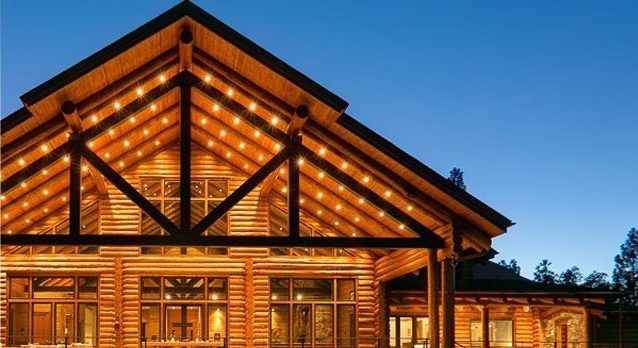The roof of a property is more than just a functional necessity; it safeguards its inhabitants and enhances the overall aesthetic of the structure. Expert Kent Roofing services ensure high-quality repairs and installations, providing long-term protection against environmental elements.
Moreover, professional roofers use premium materials and adhere to building standards, ensuring energy efficiency and durability.
 Durability
Durability
Your roof is your first line of defense against the elements. It must offer unrivaled durability and resistance, safeguarding your home year-round against the blistering heat of summer, freezing temperatures of winter, relentless downpours of rain, and ferocious gusts of winds. Expert roofing contractors can offer a variety of solutions that will increase the durability and performance of your roof.
These solutions include precision techniques, quality materials selection, and adherence to safety protocols. In addition, they can offer energy-efficient and sustainable roofing options that can reduce your utility bills and contribute to a greener future.
Moreover, expert roofing contractors can also provide specialized solutions to address the needs of multi-family buildings. These include specialized roofing systems that can be tailored to the needs of each family and consultations on the best roofing practices and materials for a particular climate or architectural style. They can even assist in the process of obtaining building permits and providing other services that are necessary for the successful installation of a new roof. This can help improve your home’s resale value and give you peace of mind as you enjoy it for years to come.
Energy Efficiency
A roofing system that protects property against harsh weather conditions also supports energy efficiency, making it an important element of green building practices. Energy-efficient roofing materials reflect sunlight rather than absorb it, reducing the roof’s heat load and resulting in reduced cooling costs. Additionally, a well-installed roof with good ventilation promotes airflow and moisture control, reducing the risk of mold and mildew build-up.
Expert roofing contractors offer a broad range of durable, energy-efficient roofing solutions. Their experience, honed skills, high-quality materials, and attention to detail ensure lasting protection that enhances the value of your home or business. In addition, they provide maintenance services that help safeguard against damage and extend the life of your roofing system.
Commercial roofing experts know that every property has unique needs and challenges, from structural designs to regional climates and energy consumption profiles. Discerning the best energy-efficient roofing solutions requires in-depth assessments and personalized recommendations. Moreover, implementing a comprehensive energy-efficient roofing system requires an investment in upfront costs and ongoing maintenance and support. Fortunately, a variety of financing options and incentives are available to make the transition more cost-effective.
Your roof is a vital component of your home, protecting everything inside from the blistering heat of summer to bone-chilling cold and relentless rain and winds. It also provides an aesthetic boost and a valuable return on investment for your property. Choosing the right roof, investing in expert installation, and prioritizing regular inspections and maintenance are ways to protect your investment. Expert roofing contractors can also help you take advantage of rebates and tax credits to offset initial costs, making the transition even more affordable. A durable, energy-efficient roof will not only increase your home’s resale value but also provide a safe and comfortable living environment for years to come.
Aesthetics
The roof is a crucial component of the home, safeguarding it against harsh weather conditions and wear and tear. Choosing the right roofing materials, investing in proper installation, and prioritizing maintenance and repairs are critical to ensuring that your roof will provide lasting protection for years to come. By following expert roofing solutions, you can ensure that your roof will remain durable and aesthetically appealing for years to come.
Professional roofers offer a range of benefits, including precision techniques, quality materials selection, and safety protocols. In addition, they can advise homeowners on the best roofing options for their specific climate and aesthetics. This helps to ensure that the roof will be long-lasting, energy-efficient, and aesthetically pleasing, and will improve the overall value of the property.
For example, a state, with a distinct climate of snowy winters and humid summers requires a durable, dependable, and resilient roofing solution that can stand up to the elements. For this reason, many homeowners choose to install true metal roofs for their homes. These innovative roofs combine the aesthetics of traditional shingles with the strength and longevity of true metal. They also have a range of color options, which allows them to blend seamlessly with the rest of the home’s exterior.
Other types of durable, high-performance roofs include green roofing and rainwater harvesting solutions. These eco-conscious roofing options help to reduce the need for water, which is an essential resource for sustaining life and maintaining healthy living conditions. In addition, these roofing systems often include solar panels to help reduce energy costs and contribute to a greener future. Moreover, they are also easy to maintain, which makes them an ideal choice for homeowners looking to protect their investments and enjoy the benefits of a sustainable home.
Value
A well-maintained roof is an undeniable asset to your property, increasing its resale value and safeguarding the integrity of everything within it. Investing in quality roofing materials, ensuring that installation is done properly, and prioritizing regular maintenance and repairs will give you peace of mind knowing that your home’s most crucial structure is protecting you and all that is inside it from harsh weather conditions, preserving energy efficiency, and adding to its aesthetic appeal.
Dedicated contractors offer many different services that are designed to meet the individual needs of homeowners, whether they are looking for routine roofing repairs, expert storm damage repair, or a complete roof replacement. Many of these services include warranties on workmanship and the quality of the materials used, allowing homeowners to get the most out of their investment in a durable, functional, and beautiful new roof for years to come.
Aside from ensuring the durability and performance of a roof, professional installation also saves homeowners money in the long run by reducing the risk of costly insurance claims and boosting the resale value of their homes. Expert roofing contractors can help homeowners understand the ins and outs of their insurance policies, advising them on how to get the most out of their coverage and positioning them to save money through reduced risk and more favorable policy terms. These insights can be invaluable for both homeowners and business owners alike, empowering them to make informed decisions that will have a lasting impact on their property’s protection and longevity.




 When it comes to roofing, you want to hire an experienced professional. Whether you need a roof repair or a complete replacement, you can count on the pros to get the job done right.
When it comes to roofing, you want to hire an experienced professional. Whether you need a roof repair or a complete replacement, you can count on the pros to get the job done right.